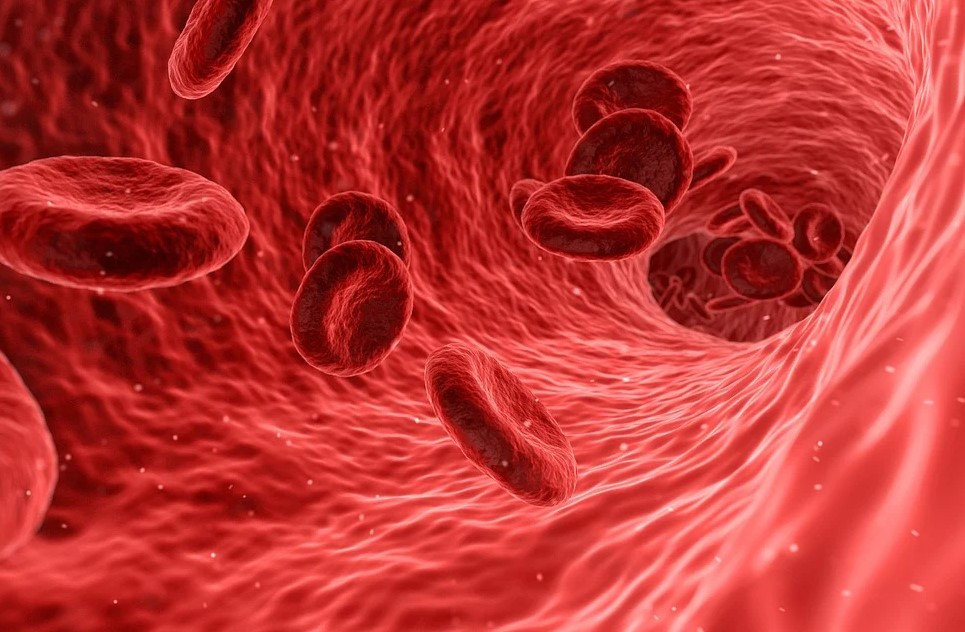Anda mungkin sudah tidak asing dengan istilah anemia, bukan? Anemia adalah kondisi di mana tubuh memiliki jumlah sel darah merah yang lebih rendah dari kadar normal. Anemia menyebabkan sel darah merah tidak mampu mengangkut oksigen yang cukup ke jaringan tubuh dan organ tubuh menjadi terganggu. Akibatnya, Anda akan mengalami kelelahan, kelemahan, pusing, sesak napas, kulit pucat, dan denyut jantung cepat.
Namun, anemia aplastik berbeda dengan anemia biasa. Anemia aplastik merupakan kondisi langka dan bisa menjadi sangat serius, bahkan membahayakan jiwa.
Apa itu Anemia Aplastik
Anemia aplastik adalah kondisi yang melibatkan kegagalan sumsum tulang dalam memproduksi sel-sel darah secara normal. Kondisi ini mengakibatkan jumlah sel darah merah, sel darah putih dan trombosit yang rendah di dalam darah.
Anemia aplastik bisa terjadi ketika sel-sel induk sumsum tulang tidak mampu menghasilkan sel darah matang dengan cepat dan dalam jumlah yang cukup. Kondisi ini bisa disebabkan oleh berbagai faktor termasuk faktor genetik, paparan zat kimia atau radiasi, infeksi virus seperti Epstein Barr atau hepatitis, atau penggunaan obat-obatan tertentu.
Anemia aplastik termasuk kondisi yang langka dan jarang terjadi, namun bisa sangat serius serta membahayakan jiwa. Orang yang mengalaminya merasakan gejala seperti mudah lelah, sesak napas, mudah memar, mudah berdarah, atau sering mengalami infeksi saja. Dengan anemia aplastik Anda mungkin membutuhkan transfusi darah, terapi imunosupresif, transplantasi sumsum tulang hingga terapi gen untuk tetap sehat.
Baca Juga: Mengenal Gejala dan Penyebab Anemia pada Orang Dewasa
Mengapa Anemia Aplastik Bisa Menyebabkan Kematian?
Tidak seperti anemia biasa, anemia aplastik merupakan kondisi yang serius dan dapat mengancam jiwa. Anemia aplastik dapat menyebabkan komplikasi yang lebih serius dan berpotensi menyebabkan kematian, di antaranya:
Hipoksia
Ketika Anda menderita anemia aplastik, sumsum tulang gagal memproduksi sel darah merah yang cukup. Kekurangan sel darah merah ini dapat menyebabkan hipoksia, di mana jaringan dan organ tubuh tidak bisa menjalankan fungsinya dengan baik.
Hipoksia yang berat memiliki dampak yang serius, bahkan fatal pada organ-organ vital seperti jantung, otak, dan paru-paru. Kerusakan organ yang disebabkan oleh hipoksia yang berat dapat menyebabkan kegagalan organ dan kematian jika tidak ditangani dengan cepat dan efektif.
Infeksi serius
Salah satu ciri anemia aplastik adalah kekurangan sel darah putih yang berperan penting dalam melawan infeksi bakteri, virus, dan jamur. Dengan demikian, orang dengan anemia aplastik menjadi lebih rentan terhadap berbagai jenis infeksi. Infeksi dapat menyerang organ-organ vital seperti paru-paru, ginjal, dan sistem saraf yang dapat berkembang menjadi infeksi serius dan fatal apabila tidak ditangani dengan cepat.
Baca Juga: Penderita Anemia Sebaiknya Menghindari Beberapa Jenis Makanan Ini
Perdarahan parah
Kekurangan trombosit (trombositopenia) dalam anemia aplastik dapat meningkatkan risiko perdarahan parah. Trombosit merupakan komponen darah yang bertanggung jawab terhadap pembekuan darah. Saat terjadi luka atau kerusakan pada pembuluh darah, trombosit akan berkumpul di area tersebut dan membentuk bekuan darah untuk menghentikan perdarahan.
Pada pasien anemia aplastik, perdarahan yang dialami bisa menjadi tidak terkendali dan sulit dihentikan, baik itu perdarahan eksternal seperti luka sayatan maupun perdarahan internal seperti perdarahan otak. Perdarahan internal yang serius bisa berkembang menjadi kondisi yang mengancam jiwa apabila tidak ditangani segera.
Gagal jantung
Gagal jantung tidak secara langsung disebabkan oleh anemia aplastik. Namun, kondisi anemia aplastik yang tidak diobati dengan tepat dan berlangsung dalam jangka waktu lama dapat menyebabkan beban berlebihan pada jantung. Beban berlebihan ini dapat menyebabkan stres pada jantung dan penurunan fungsi jantung secara bertahap.
Selain itu, kekurangan oksigen dalam darah akibat anemia aplastik dapat menyebabkan tekanan darah meningkat sehingga jantung harus bekerja lebih keras dalam memompa darah. Tekanan darah tinggi kronis dapat menyebabkan kerusakan pada jantung dan pembuluh darah yang pada akhirnya menyebabkan gagal jantung.
Untuk mencegah komplikasi yang serius dan berpotensi fatal akibat anemia aplastik, disarankan untuk menjalani pengobatan yang tepat. Pengobatan yang tepat dapat membantu meningkatkan jumlah sel darah merah, sel darah putih serta trombosit dalam darah. Untuk mengetahui jenis pengobatan yang tepat, Anda perlu berkonsultasi dengan dokter lebih lanjut. Anda bisa memanfaatkan layanan konsultasi kesehatan dengan mengunduh aplikasi Ai Care melalui App Store atau Play Store untuk mengetahui lebih lanjut mengenai anemia aplastik.
Mau tahu informasi seputar penyakit lainnya? Cek di sini, ya!
- dr. Monica Salim
National Heart, Lung, and Blood Institute (2022). Aplastic Anemia. Available from: https://www.nhlbi.nih.gov/health/anemia/aplastic-anemia
Cleveland Clinic (2023). Aplastic Anemia. Available from: https://my.clevelandclinic.org/health/diseases/16747-aplastic-anemia
Amanda Gardner (2024). What Is Aplastic Anemia?. Available from: https://www.webmd.com/a-to-z-guides/aplastic-anemia
National Heart, Lung, and Blood Institute (2022). What Is Anemia?. Available from: https://www.nhlbi.nih.gov/health/anemia
Daniel Yetman (2024). What Is Severe Aplastic Anemia?. Available from: https://www.healthline.com/health/anemia/severe-aplastic-anemia
Cleveland Clinic (2022). Hypoxia. Available from: https://my.clevelandclinic.org/health/diseases/23063-hypoxia
Mary Anne Dunkin, et al(2024). Sepsis Symptoms and Treatment. Available from: https://www.webmd.com/a-to-z-guides/sepsis-septicemia-blood-infection
Health Direct (2023). Thrombocytopenia. Available from: https://www.healthdirect.gov.au/thrombocytopenia
NHS UK (2022). Heart failure. Available from: https://www.nhs.uk/conditions/heart-failure/











